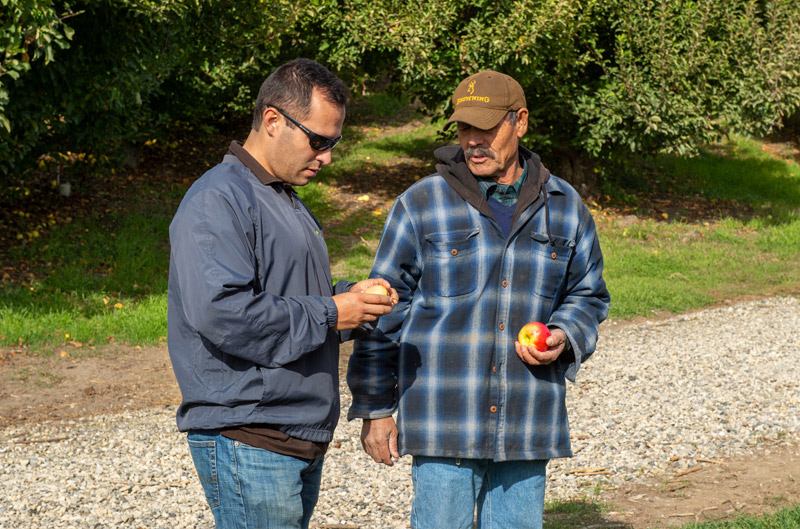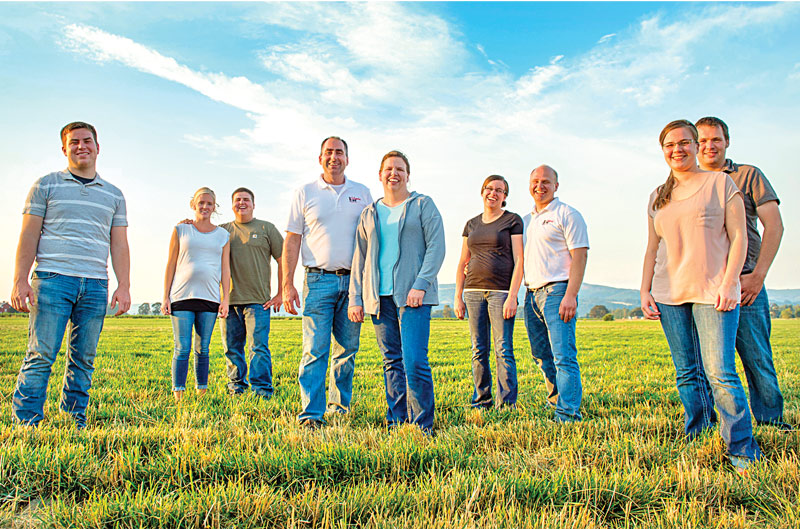On This Page
Family business planning is a foundational process that can help ensure generational success. Use the resources below to guide your family’s journey using our proven approach developed with over 20 years of experience working with hundreds of families.
Northwest FCS recommends completing these topics in sequential order; however, each resource may be used individually if your planning process is already in progress or if you’re just looking for a specific topic resource.
Family Business Basics
A successful planning process aligns family business cornerstones, strategic plans, longer term goals and action plans. After completing this session, you will:
- Have a basic knowledge of family business fundamentals and terminology.
- Understand high-level process and steps for family business planning.
- Commit to start the process and agree upon ground rules and next steps.

Family Business Communications
Effective communications are essential for any healthy relationship and foundational for effective family business planning to occur. After completing this session, you will:
- Have a basic knowledge of behavioral preferences based on concepts from the DiSC® behavioral assessment.
- Recognize how behavioral preferences are different and the importance of understanding your own and those of others.
- Appreciate strengths and adapt behavior to communicate with others more effectively.

Family Business History and Timeline
Assessing the past, gleaning lessons learned and considering the current business environment is a great first step in evaluating future milestones and goals for the family business. After completing this session, you will:
- Know why it is important to inventory family business milestones.
- How to complete a history timeline.
- Recognize and appreciate changes, achievements and lessons learned over time and how they impact the current and future state of the business.

Family Business Values
Values established collaboratively create shared understanding and accountability and can help ensure the decisions made during the planning process are consistent with the values identified. After completing this session, you will:
- Identify shared values in the family business.
- Define each value and how it is exhibited.
- Confirm and commit to shared core values that all are accountable to.

SWOT Analysis
The SWOT acronym stands for Strengths, Weaknesses, Opportunities and Threats. A SWOT analysis is a simple and useful framework for analyzing a business’ internal and external environment. After completing this session, you will:
- Understand the positive and negative factors inside and outside the business.
- Identify strengths to build upon and weaknesses to eliminate.
- Identify external threats to defend against and opportunities to take advantage of.

Personal Goals
The intimate nature of family relationships, mutual care for each other, and opportunities to involve family members in the planning process enable family businesses to develop plans that achieve a balance of business and personal goals, and ultimately long-term success. After completing this session, you will:
- Identify personal goals including goals related to professional, financial, relationship and well-being.
- Share goals and aspirations with others in the business.
Discuss personal goals as an important consideration in business planning.

Business Vision
A vision statement is a clear and detailed description of the business at a specific future date (commonly three to five years in the future). A well-defined and accepted business vision assures owners, managers, employees, and stakeholders understand the direction of the business, providing a ‘north star’ or ‘destination’ around which to align decision-making and priorities. After completing this session, you will:
- Develop a shared understanding of the desired direction of the business.
- Define success in terms of enterprises, management, leadership and ownership for a specific future state.
- Commit to decision making and planning aligned with the business vision.

Transition Timeline
Management transition planning focuses on the transfer of management and decision making to the next generation (family or non-family) of leaders in a business. It is one of the most important (and often most difficult) tasks for a business owner or manager and is a critically important part of strategic business planning. After completing this session, you will:
- Identify a desired transition date and definition of transition.
- List retirement funding sources from within and outside the business.
Share transition plan with other in the business and discuss.

Roles and Responsibilities
The process of defining roles and responsibilities involves taking an inventory of all key tasks in the business, which is an important step to enable planning for a gradual transition of management and decision-making for the next generation. After completing this session, you will:
- Use a spreadsheet tool to define functional areas, tasks and the individuals involved.
- Identify and discuss gaps in functional areas and tasks.
- Consider timelines and development plans for next generation management, leadership and/or ownership.

Estate Plan Philosophy
Integrating estate considerations into the strategic planning process includes open communications in the family and a means to visit the plan regularly. The estate philosophy can evolve over time just as the business and family can evolve. After completing this session, you will:
- Identify the owner’s long-term objectives for the business and family estate philosophy.
- Consider the differences between fair versus equal.
- Inventory all business and personal assets, asset values and proposed distribution.
- Develop an estate plan philosophy.

Strategic Decisions and Action Planning
A consistent and structured approach to decision making helps make the process easier and generates buy-in, especially when there are differences of opinion. After completing this session, you will:
- Identify high priority opportunities or challenges for strategic discussion.
- Use a structured approach to make a decision or solve a problem.
- Document goals and priorities.
- Inventory issues to defer for later consideration.
- Create an action plan with accountabilities.

Please share your feedback! Click Here to complete a short two-minute evaluation of these business resources.
Additional Family Business Resources
Questions or comments
Email the Business Management Center or call 866.552.9193
Disclaimer: This material is for informational purposes only and cannot be relied on to replace your own judgment in assessing the accuracy or relevance of the information to your own operations. This material is not intended to provide investment, tax, estate planning or legal advice. Nothing in this material shall constitute a commitment by AgWest to lend money or extend credit. This material is provided independent of any lending, other financing or insurance transaction. This material is a compilation of outside sources and the various authors’ opinions. AgWest does not endorse, approve, recommend, or certify any information, opinion, product, or service referenced by third parties related to this content.